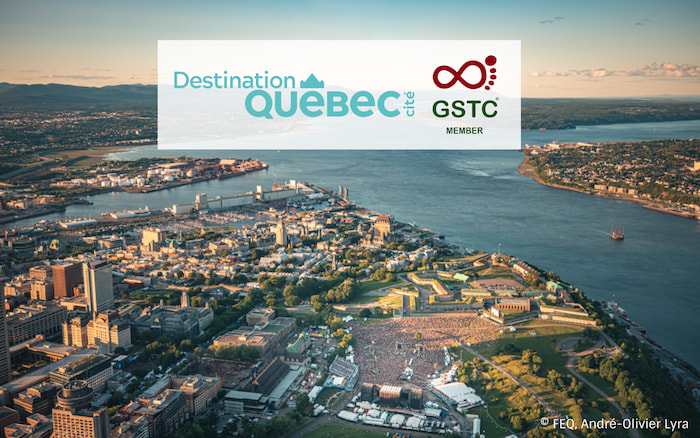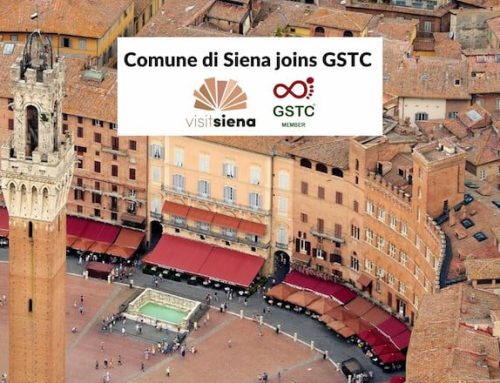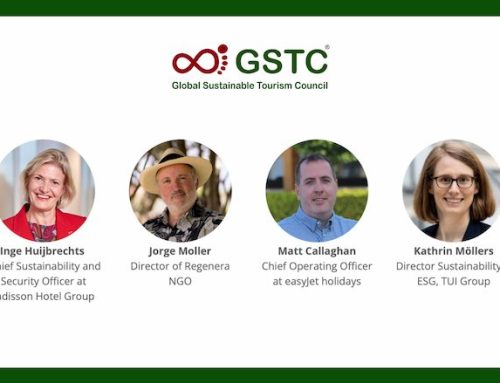Destination Québec cité has joined as a Member of the Global Sustainable Tourism Council (GSTC)
Quebec City is Located in Eastern Canada. Old Québec, is a UNESCO World Heritage treasure, where you can stroll the cobblestone streets of the only fortified city north of Mexico and explore its gorgeous outdoors nearby. Home to a population of 717,000 inhabitants (Greater Québec City Area), 95% of them French-speaking. However, many people, including the vast majority of hospitality industry workers, also speak English, the city is famed for its hospitality and joie de vivre.
Sustainability in Québec City
Destination Québec cité is committed to supporting sustainable travel and tourism both with visitors in the way of advising them to explore the region and with companies to accompany them in this responsible shift. Their goal is to make Québec City one of the references among sustainable tourism destinations in North America.
Even though they began their shift in sustainable tourism more firmly a year ago, Destination Québec cité, and the Québec City region, benefit from undeniably unique assets that make it stand out worldwide and that are natural pillars of sustainable tourism. It especially benefits from the presence near its downtown core of vast natural territories and access to the Huron-Wendat culture, one of the only French-speaking communities in Canada. Since then, they have implemented several initiatives that tend to demonstrate that every gesture counts to encourage more responsible stays.
Destination Québec cité is positioning itself as a true idea hub for a more sustainable, responsible and innovative tourism. Moving to a new kind of tourism, DQc wants to be an even more inspiring destination. They promote businesses that have a concern for the environment, the social impacts, or the local economy as sustainable tourism examples. More concretely, these are the ones that carry out actions aimed at limiting their ecological footprint, sourcing locally, or seeking to increase the positive impacts for local communities.
On their website, they have a tool for travelers to calculate and offset the CO2 emissions from their trip to Québec City. The carbon offset is used to plant trees in the boreal forest. The species planted are forest species provided by Québec’s Ministère des Forêts, de la Faune et des Parcs. The plantations of the Agricultural project aim to reforest portions of agricultural wasteland impossible to cultivate and include a method of compensation to farmers of $1 per tree. Offsets are provided for a donation of $5 per tree or $35 per tonne of CO2. The emission factors are estimated and provided to Destination Québec cité by Carbone boréal.
“Destination Québec cité’s role is changing along with the needs of the industry. It must now promote and support tourism development in the Québec City region by fostering cooperation with the community to responsibly generate economic prosperity and sustainable benefits. The basis for these actions is three-fold: regional organization competitiveness, the destination’s attractiveness and its prestige. We will be the catalyst that combines our teams’ expertise and talent with the community’s energy and creativity to create a hub of innovation. Together, let’s chart a prosperous and responsible transformation of the industry. Let’s make Québec City the city of ideas that come to life,” said Robert Mercure, General Manager, Destination Québec cité.
GSTC Welcomes Destination Quebec cité
“We at GSTC wish Quebec City great success in their journey toward more sustainable management approaches and in fulfilling their intentions for a sustainable future,” he said. “We are proud to play a part in their journey.” says Randy Durband, CEO of GSTC.
GSTC encourages destinations pursuing sustainability practices in tourism development and management to join as GSTC members and apply the GSTC Destination Criteria, which eventually can help achieve certification by a GSTC-Accredited Certification Body.
About Destination Québec cité
Destination Québec cité (formerly Québec City Tourism) counts more than 825 members in Québec City, L’Ancienne-Lorette, Saint-Augustin-de-Desmaures, Wendake and the surrounding areas of Portneuf, Jacques-Cartier, Île d’Orléans, and Côte-de-Beaupré. It guides and leads tourism industry growth and contributes to industry prosperity through its marketing and development efforts, hospitality services for tourists, and information to the industry
For more information: https://www.quebec-cite.com/en
About the GSTC
The Global Sustainable Tourism Council® (GSTC®) establishes and manages global sustainable standards, known as the GSTC Criteria. There are two sets: Destination Criteria for public policy-makers and destination managers, and Industry Criteria for hotels and tour operators. These are the guiding principles and minimum requirements that any tourism business or destination should aspire to reach in order to protect and sustain the world’s natural and cultural resources while ensuring tourism meets its potential as a tool for conservation and poverty alleviation.
The GSTC Criteria form the foundation for GSTC’s assurance role for Certification Bodies that certify hotels/accommodations, tour operators, and destinations as having sustainable policies and practices in place. GSTC does not directly certify any products or services, but provides accreditation to those that do. The GSTC is an independent and neutral USA-registered 501(c)3 non-profit organization that represents a diverse and global membership, including national and provincial governments, leading travel companies, hotels, tour operators, NGOs, individuals and communities – all striving to achieve best practices in sustainable tourism.
Information for media and the press: www.gstcouncil.org/about/for-the-press/
Picture: © FEQ, André-Olivier Lyra





